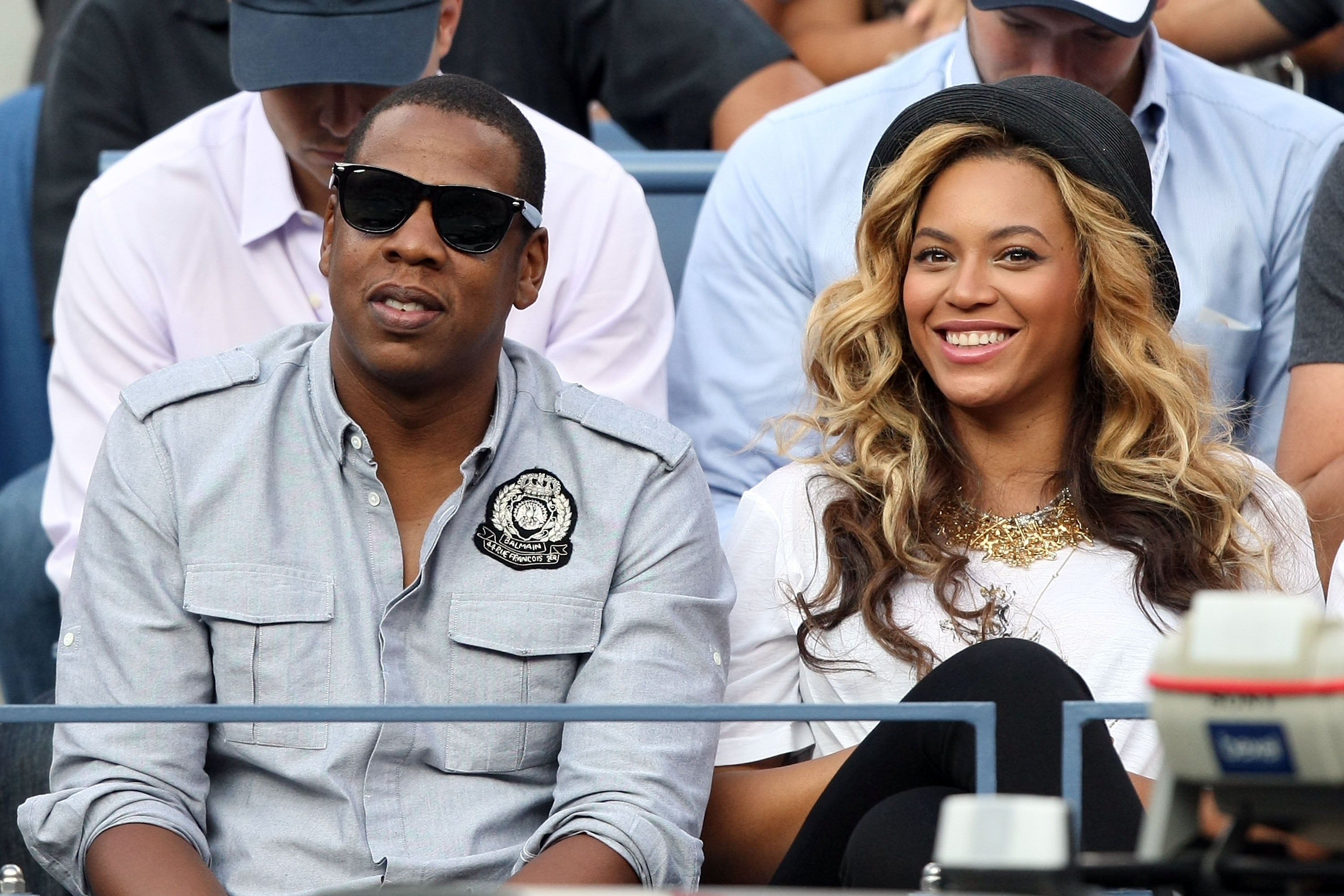
We all know the “right” response to that particular question…but there are so many other things we say that might be outing our honest feelings, our un-PC private thoughts.
Yesterday, I was reading “On Baby Blue Ivy Carter and the Alleged Ugliness of Blackness” on Colorlines. Writer Akiba Solomon also had picked up on a startling trend I noticed in comments about Jay-Z and Beyonce’s new addition: backhanded well-wishes to the couple, hoping that Baby Girl Carter looked more like her mother and less like her father. Solomon equated reading so many negative stories about Baby Blue as “walking among stunted souls who traffic in the idea that the full lips, large eyes, broad nose and dark brown skin of a Jay-Z is inherently ugly.”
Let’s admit it: A lot of us are bamboozled, led astray, and just plain brainwashed when it comes to what traits we find attractive on Black people. It’s no accident that the Black women whose beauty we fawn over — the Beyonces and Rihannas and Halle Berrys — all happen to be on the lighter end of the Black color spectrum. It’s no secret that we as a people equate lightness with beauty. Ask any woman who failed the brown paper bag test, who grew up hearing she was “pretty for a dark girl” – as if to be both is some sort of inherent contradiction, and she just happened to strike gold. But the color issue is just scratching the surface.
If some of us are very honest, we’ll acknowledge that there are only certain “Black” physical features that we as a collective find attractive. Curves? A blessing and curse. Full lips? Eh… depends on how full. Broad nose? On women, not at all. On men? Some get a pass, but not Jay-Z. Kinky hair? Not so much. There’s a reason most Black women “prefer” perms and even a lot of natural girls spend an inordinate amount of time and product trying to reconfigure their coils into curls.
Granted, there’s good reason for all this. We’ve heard negative messages about our looks since slavery, and we’ve passed down the destruction through generations. It comes from grandmothers who told us to “stay out of the sun!”, mothers who may have urged us to consider a man’s hair or complexion to assess his worth as a partner, aunties who discouraged us from wearing our hair naturally. And we live in a culture where we are bombarded with images that practically scream white is somehow more right, more beautiful, mo’ better.
Our history is what it is, but where does the ignorance finally stop? Each time we repeat what’s been ingrained in us, we spread our self-hate just a little bit further, embed it deeper in ourselves, and guarantee it will be instilled in generations to come. We’ll never do better if we don’t actually, well, do better.
Demetria L. Lucas is the author of “A Belle in Brooklyn: The Go-to Girl for Advice on Living Your Best Single Life” (Atria) in stores now. Follow her on Twitter @abelleinbk




